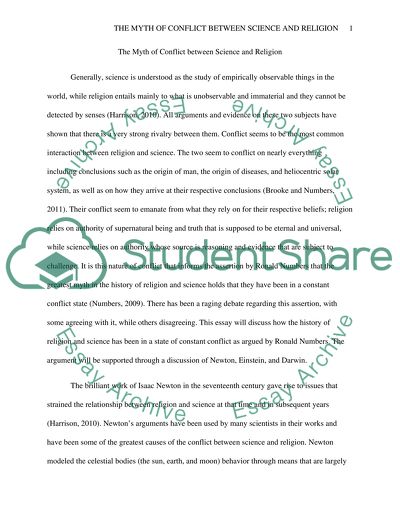Cite this document
(“The Myth of Conflict Between Science and Religion Essay”, n.d.)
Retrieved from https://studentshare.org/religion-and-theology/1456194-the-myth-of-conflict-between-science-and-religion
Retrieved from https://studentshare.org/religion-and-theology/1456194-the-myth-of-conflict-between-science-and-religion
(The Myth of Conflict Between Science and Religion Essay)
https://studentshare.org/religion-and-theology/1456194-the-myth-of-conflict-between-science-and-religion.
https://studentshare.org/religion-and-theology/1456194-the-myth-of-conflict-between-science-and-religion.
“The Myth of Conflict Between Science and Religion Essay”, n.d. https://studentshare.org/religion-and-theology/1456194-the-myth-of-conflict-between-science-and-religion.


